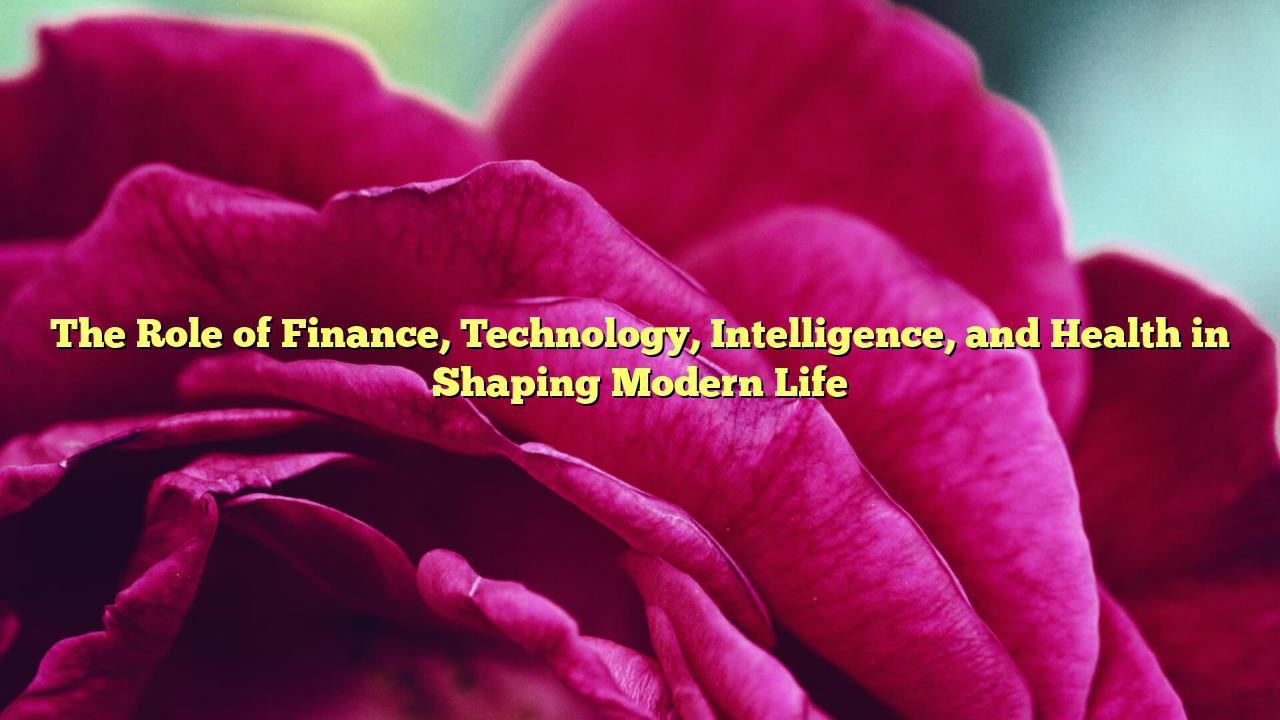In today’s fast-paced world, four pivotal elements influence how we live, work, and interact: finance, technology, intelligence, and health. These sectors are interconnected and have a profound impact on every aspect of our daily lives. To understand the dynamics of our modern world, it is important to grasp how these sectors are interconnected.
The Financial Landscape: Transformations in Modern Economies
The financial sector has undergone dramatic changes over the past few decades. From traditional banking systems to the rise of cryptocurrencies and fintech startups, financial innovations are reshaping the way we manage money. One key development has been the shift towards digital finance, which has provided greater access to financial services for people across the globe. Digital platforms, such as mobile banking apps, have made financial transactions more convenient, efficient, and accessible than ever before.
Additionally, financial intelligence has become crucial for individuals and businesses alike. With the increasing availability of data, leveraging technology to analyze and interpret financial information has become more important. samosir88 involves the use of algorithms, machine learning, and artificial intelligence (AI) to predict market trends, evaluate investment opportunities, and optimize financial strategies. These technological tools help individuals and organizations make informed decisions about investments, savings, and budgeting.
Technology: The Driving Force of Progress
The impact of technology on our daily lives cannot be overstated. From artificial intelligence and automation to blockchain and the Internet of Things (IoT), technology continues to reshape industries and redefine what is possible. For instance, AI is being used in everything from customer service to healthcare, while blockchain is providing secure and transparent ways to manage transactions. Automation has revolutionized industries like manufacturing, logistics, and services by streamlining processes and improving efficiency.
The proliferation of the Internet of Things (IoT) has also created a more connected world. Devices like smart homes, wearables, and connected health-monitoring systems are making it easier for people to access real-time data that enhances their daily experiences. This network of interconnected devices has allowed for smarter decision-making, enhanced productivity, and a more personalized approach to everything from healthcare to entertainment.
Despite the benefits, the rise of technology also brings important concerns, especially regarding privacy, security, and ethics. The vast amounts of personal data being collected require strict regulations and safeguards to protect privacy and ensure ethical practices.
The Role of Intelligence in the Modern World
Intelligence, in its various forms, plays a pivotal role in shaping how we interact with the world around us. Human intelligence enables critical thinking, problem-solving, and creativity, which have been instrumental in some of the most significant advancements in history. However, the rise of artificial intelligence is changing the landscape of what intelligence can do. AI systems, designed to replicate human cognitive functions, are learning from large datasets and making decisions based on patterns too complex for humans to detect. These advancements in AI have brought about incredible innovations, from self-driving cars to predictive healthcare.
While AI holds great promise, it also brings challenges, such as its impact on employment, ethics, and the nature of human identity. Many worry about the displacement of jobs due to automation, as well as the potential for AI to make biased or unethical decisions. Therefore, balancing the potential benefits of AI with the ethical considerations of its implementation is crucial.
Moreover, the development of artificial general intelligence (AGI) raises profound questions about the future of human-machine interaction. How can we ensure that AI aligns with human values and supports the collective well-being?
Health and Wellness: Cornerstones of a Thriving Society
Of all the factors influencing our well-being, health remains the most crucial. In recent years, both mental and physical health have taken center stage, with increasing recognition that well-being is fundamental to a fulfilling life. Advances in medical technology, such as telemedicine, wearable health devices, and gene editing, are revolutionizing the way we approach healthcare. Telemedicine allows patients to consult with doctors remotely, while wearable devices monitor everything from heart rate to sleep patterns.
AI’s role in healthcare is also growing, as it helps improve diagnostics and treatment plans. AI algorithms can analyze medical data at unprecedented speeds, enabling quicker diagnoses and more personalized treatment options. This technological leap not only enhances the efficiency of healthcare systems but also improves outcomes for patients. As a result, healthcare is shifting toward a more proactive and personalized model that benefits patients worldwide.
Health goes beyond technological advances. True well-being requires a holistic approach, addressing mental health, lifestyle habits, and ensuring access to quality healthcare services.
Conclusion: The Power of Integration in Modern Life
Looking ahead, it is clear that these four sectors—finance, technology, intelligence, and health—will continue to shape our future. Their interconnectedness presents both opportunities and challenges, requiring us to navigate the complexities of a rapidly changing world. By understanding and harnessing the power of these forces, we can build a more sustainable, equitable, and prosperous future for all.
The Role of Finance, Technology, Intelligence, and Health in Shaping Modern Life



